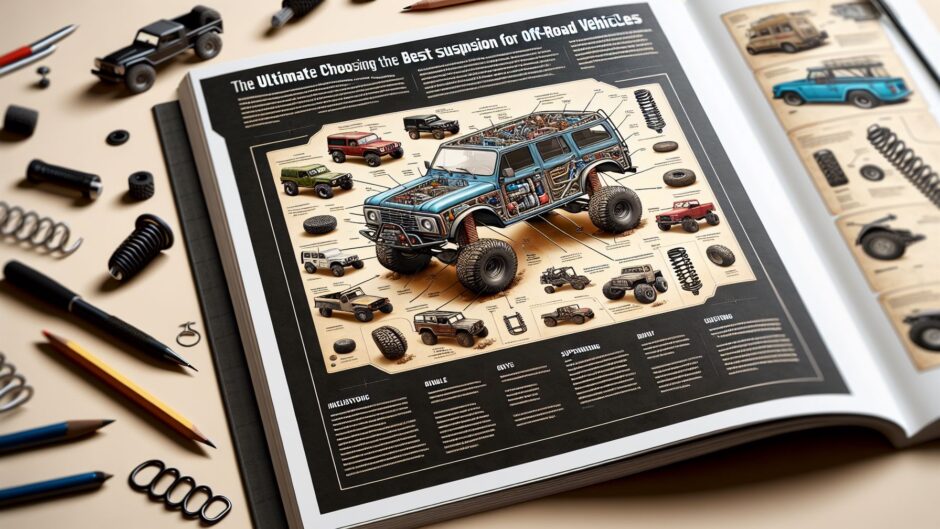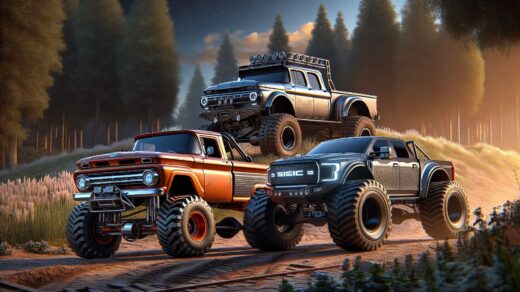When it comes to off-road adventures, having the right suspension system is of paramount importance. Whether you’re a professional racer or an avid enthusiast, investing in a top-notch suspension can significantly enhance your vehicle’s performance and ensure maximum safety on challenging terrains. In this comprehensive guide, we will delve into the world of suspensions for off-road vehicles, exploring different types, key components, and factors to consider when choosing the perfect suspension for your needs.
Introduction
Off-roading is a thrilling yet demanding pursuit, requiring vehicles to absorb the relentless bumps, jumps, and unpredictable obstacles encountered on rough terrains. This is where a robust suspension system becomes indispensable. It acts as an interface between your car’s chassis and the wheels, providing enhanced control, stability, and comfort while enduring the rigors of intense off-road adventures.
Types of Suspensions
-
Independent Suspension – This type of suspension, commonly found in expensive luxury vehicles and performance cars, offers excellent ride quality and handling. It allows each wheel to move independently, thereby enabling smoother rides on uneven terrains. However, independent suspensions may not be as durable as other types when subjected to extreme off-road conditions.
-
Solid Axle Suspension – Popular among off-road enthusiasts and professionals, solid axle suspensions are renowned for their robustness and reliability. This suspension setup connects both wheels on an axle, allowing them to move in unison. Consequently, solid axles provide exceptional articulation, meaning they can more effectively navigate through challenging obstacles like deep ruts and boulders.
Key Suspension Components
-
Shocks Absorbers – Considered the heart of any suspension system, shock absorbers play a crucial role in managing the interaction between your tires, suspension, and the terrain. High-quality shock absorbers, such as those used in top-tier race cars, can provide optimal damping characteristics for absorbing impacts and maintaining tire contact with the ground.
-
Leaf Springs or Coil Springs – These components are responsible for supporting the weight of your vehicle and providing the necessary flex to handle off-road obstacles. Leaf springs, commonly found in trucks and SUVs, are highly durable and offer excellent load-carrying capacities. On the other hand, coil springs, prevalent in high-performance off-road vehicles, deliver greater articulation and ride comfort.
Factors to Consider
-
Terrain Type – The type of terrain you primarily encounter will heavily influence your suspension choice. If you frequently venture into rocky terrains or encounter aggressive off-road obstacles, a robust and flexible solid axle suspension system is recommended. On the other hand, if your adventures mostly involve traversing sand dunes or smooth dirt trails, independent suspensions can provide a more comfortable ride.
-
Lift Height Requirements – Off-road enthusiasts often seek increased ground clearance to tackle more challenging terrains. If you are planning to lift your vehicle, be sure to consider a suspension system designed to accommodate the desired height without compromising stability or compromising drivability.
Conclusion
Investing in a high-quality suspension system is a game-changer for anyone serious about off-roading. Whether it’s conquering treacherous trails or taking part in high-stakes racing competitions, a suspension tailored to your vehicle and needs will significantly enhance your performance, control, and safety. By understanding the types of suspensions available, key components, and considering essential factors, you can confidently choose the best suspension system that suits your off-road adventures. So, gear up, hit the dirt, and let your exceptional suspension take you to new heights in the world of off-roading!



